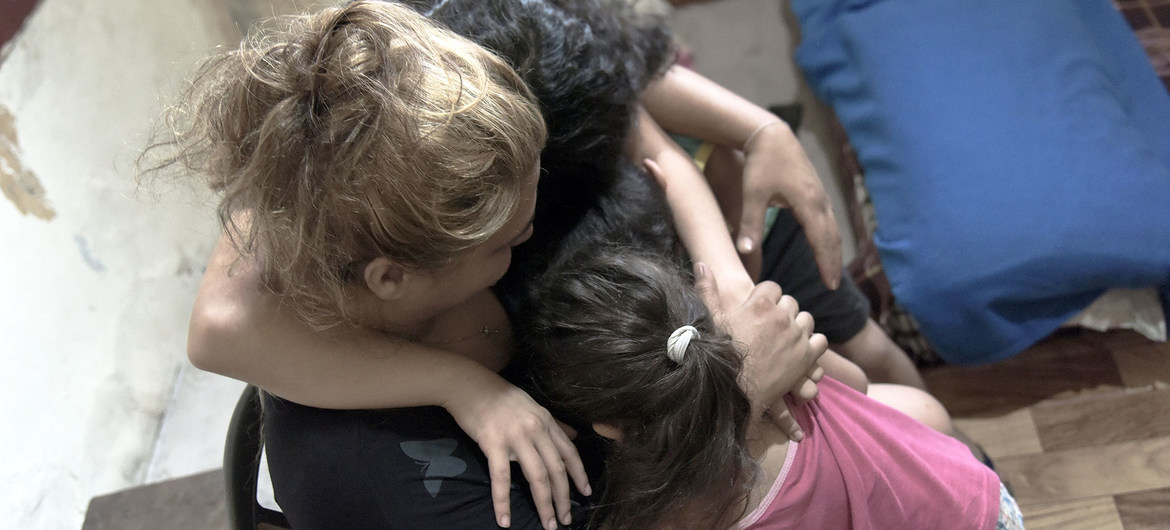 Beirut Blast
Beirut Blast UNICEF works to ease suffering of children whose lives have been ‘turned upside-down’ after Beirut blast
New York: Following a deadly explosion earlier this month, the UN Children’s Fund (UNICEF) has delivered some 67 tons of critical humanitarian supplies to affected children and families in Beirut.
Through two airlifts and commercial cargo routes, vital personal protective equipment (PPE), medical, health hygiene and nutrition supplies were able to reach those in desperate need.
“Before the dust had begun to settle, UNICEF teams were working to ensure that urgently needed humanitarian supplies could reach children and families affected as soon as possible”, said UNICEF Lebanon Representative Yukie Mokuo.
On 4 August, a cache of ammonium nitrate caused a deadly explosion in Lebanon that rocked the capital of Beirut, causing devastation in a city already suffering from the global coronavirus pandemic.
The blast killed close to 200 people, injured thousands of others, left around a quarter of a million homeless, and sparked protests that prompted the resignation of Prime Minister Hassan Diab and his entire cabinet.
On the ground
The UN agency’s immediate response was to distribute 18 shipments of pre-positioned supplies, which were in stock, while working to procure additional humanitarian items locally, including PPE, infection prevention and control (IPC) kits and other hygiene items, as well as provisions to support psycho-social assistance to affected children.
To compliment the locally procured supplies, additional materials were sent to Beirut from UNICEF’s global supply hub in Copenhagen, with further shipments planned in the coming days and weeks.
“Children have had their lives turned upside-down”, Ms. Mokou reminded. “Making sure that families have their basic needs met will allow them to start rebuilding their lives and look to the future”.
Much more needed
Against the backdrop that COVID-19 cases in the country continue to surge, and that the explosions destroyed 10 containers of PPE, it was critical that UNICEF was able to deliver more than $3.5 million worth of critical PPE and IPC kits.
“As families fight to rebuild after the chaos of the explosions, coupled with the ongoing economic crisis and the added threat of COVID-19, the support of our donors and partners has been absolutely critical”, she continued, “but much more is still needed”.
The humanitarian supplies were delivered with the assistance of the European Union’s European Civil Protection and Humanitarian Aid Operations (ECHO) and the Government of Belgium and through a donation from the Sanofi Foundation.
However, UNICEF still requires $46.7 million to respond to the immediate needs of children and families over the next three months – with a focus on keeping children safe; rehabilitating basic essential services; and equipping young people with the skills they need to help rebuild their country – all while limiting the spread of COVID-19.
“Now is the time for the international community to stand with the people of Lebanon and ensure that they receive the help and assistance required”, concluded the UNICEF envoy.
Photo caption and credit: UNICEF/IanFrancis
UNICEF, with local partner Himaya, provides Faten, the mother of three, with psychosocial support after the catastrophic explosion in Beirut on 4 August 2020.
Support Our Journalism
We cannot do without you.. your contribution supports unbiased journalism
IBNS is not driven by any ism- not wokeism, not racism, not skewed secularism, not hyper right-wing or left liberal ideals, nor by any hardline religious beliefs or hyper nationalism. We want to serve you good old objective news, as they are. We do not judge or preach. We let people decide for themselves. We only try to present factual and well-sourced news.







